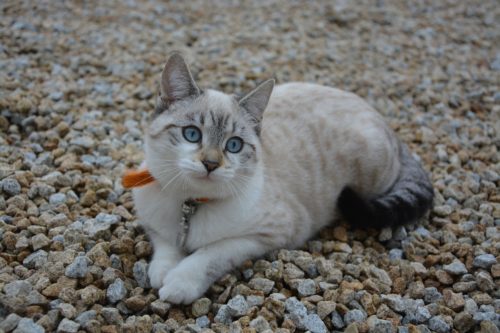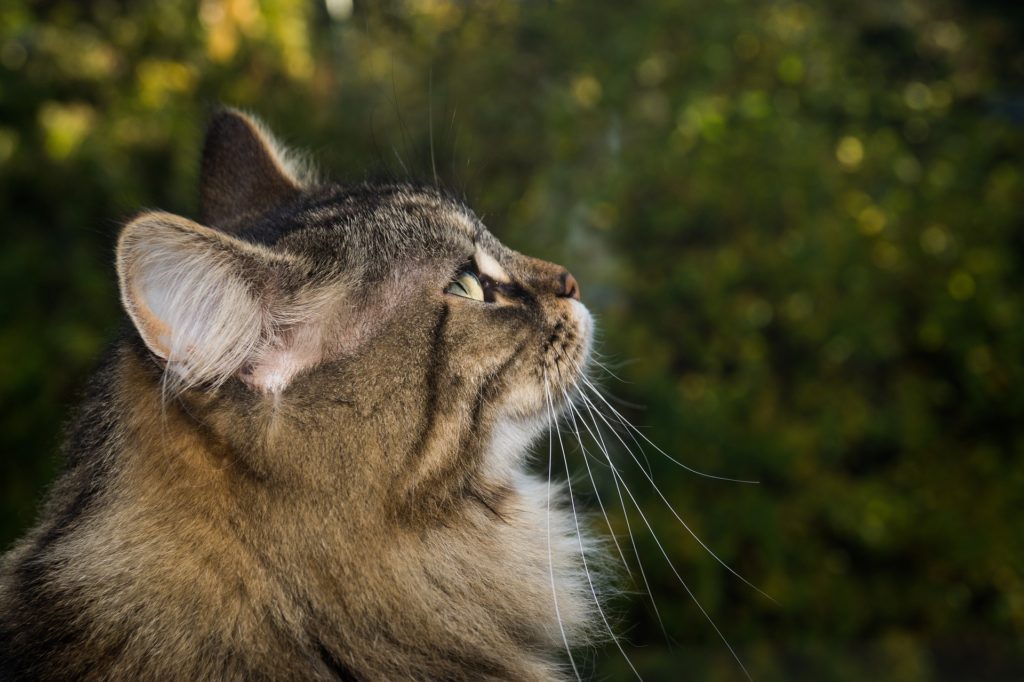Very similar to another medication called Prednisolone, Prednisone is a corticosteroid which helps reduce the body’s inflammatory response. Because of the strength of both drugs, they are considered prescription medications – meaning you cannot have access to them without a valid prescription from your veterinarian.
However, the medication has potentially dangerous side effects and should never be given to kittens or pregnant cats. Your vet will be able to work with you to develop the best treatment plan for your cat to avoid possible side effects or drug interactions.
What is Prednisone for Cats?
Prednisone is a synthetic version of the hormone known as cortisol. Cortisol is naturally produced by the body, specifically by the adrenal glands, which helps to break down glucose and aids in the body’s immune system response to swelling and inflammation. Prednisone is considered to be what is known as a catabolic steroid which helps to break down or slow this inflammatory process.
What is the Difference Between Prednisone and Prednisolone?

There are two version of the synthetic catabolic steroid: Prednisone and Prednisolone. While they both have very similar effects on the body and uses, there is one distinct difference between the two. Prednisolone is the metabolized form of Prednisone. When administered, a cat’s liver processes Prednisone – turning it into Prednisolone. There are two versions because Prednisolone is prescribed to cats with weak or compromised livers so it is easier for their body to process.
Uses of Prednisone
Due to its strength, Prednisone is typically prescribed as a short-term anti-inflammatory medication. Given its ability to reduce inflammation in cats, the drug is most commonly used to treat cats who are suffering from swelling caused by allergies or to relieve skin irritation from issues such as flea bites.
In some cases, Prednisone can also be used to treat the body’s anaphylactic shock responses to certain extreme allergies such as bee stings. In addition, Prednisone may be used to treat internal swelling due to an upper respiratory infection, pancreatitis, or irritable bowel syndrome. Your vet will work with you to determine the root cause of your cat’s inflammation and develop a treatment plan accordingly.
Though Prednisone is most commonly used to reduce or inhibit swelling in cats, it is also sometimes used as a long-term steroid therapy for cats who suffer from more extreme health conditions. When used as a long-term treatment option, Prednisone is prescribed as an immune system suppressant for cats being treated for cancers such as feline lymphoma.
Suppressing the immune system like this gives other treatment methods a better opportunity to be effective. Prednisone can also be administered to cats with brain swelling brought on by head trauma, or long-term joint pain and mobility issues associated with osteoarthritis in cats.
Administering Prednisone to Cats
Prednisone can be administered to your cat in many forms including tablets, oral liquid, syrup, eye drops, or direct injection. The format and dosage all depend on the context for which it was prescribed, and on your veterinarian’s determination of treatment. Because Prednisone can have effects on the digestive tract, your vet will likely recommend that the medication be given with food at mealtime.
Side Effects of Prednisone for Cats

Since Prednisone is an extremely powerful steroid, it is best and most effective to prescribe to cats as part of a short-term treatment plan given that the side effects of the medication are not usually mild in nature.
Even short-term use comes with a list of side effects that only worsen and become more severe the longer your cat takes Prednisone. The drug can lead to withdrawal effects if your cat is not correctly weaned off the medication based on how long he has been taking it.
Some of the dangerous side effects seen in adult cats include:
- Mood and behavioral changes including depression, lethargy, anxiety, and aggression
- Difficulty breathing such as increased panting and rapid fatigue
- Slow or impaired healing meaning minor injuries take longer to heal
- Increased susceptibility to infection making your cat more likely to develop bacterial and viral infections
- Hair loss
- Skin rash
There are also a slew of effects that Prednisone can have on your cat’s digestive and filtration systems:
- Increased appetite which can lead to obesity
- Diabetes mellitus
- Urinary tract infection from increased thirst and increased urination
- Diarrhea and vomiting
- Ulcers in the digestive tract
Like other powerful synthetic steroids, a prescription of prednisone should not be undertaken lightly or used on a whim. The administration of this drug must be monitored by your vet to ensure the continued safety and health of your cat.




